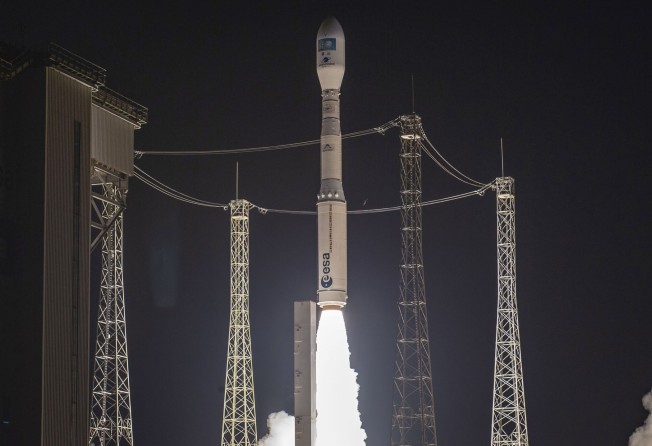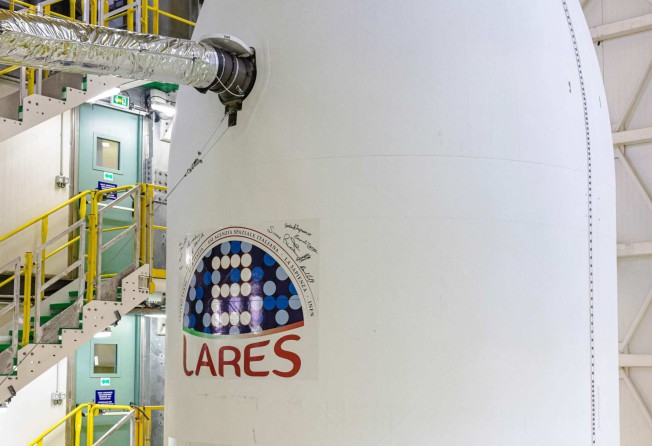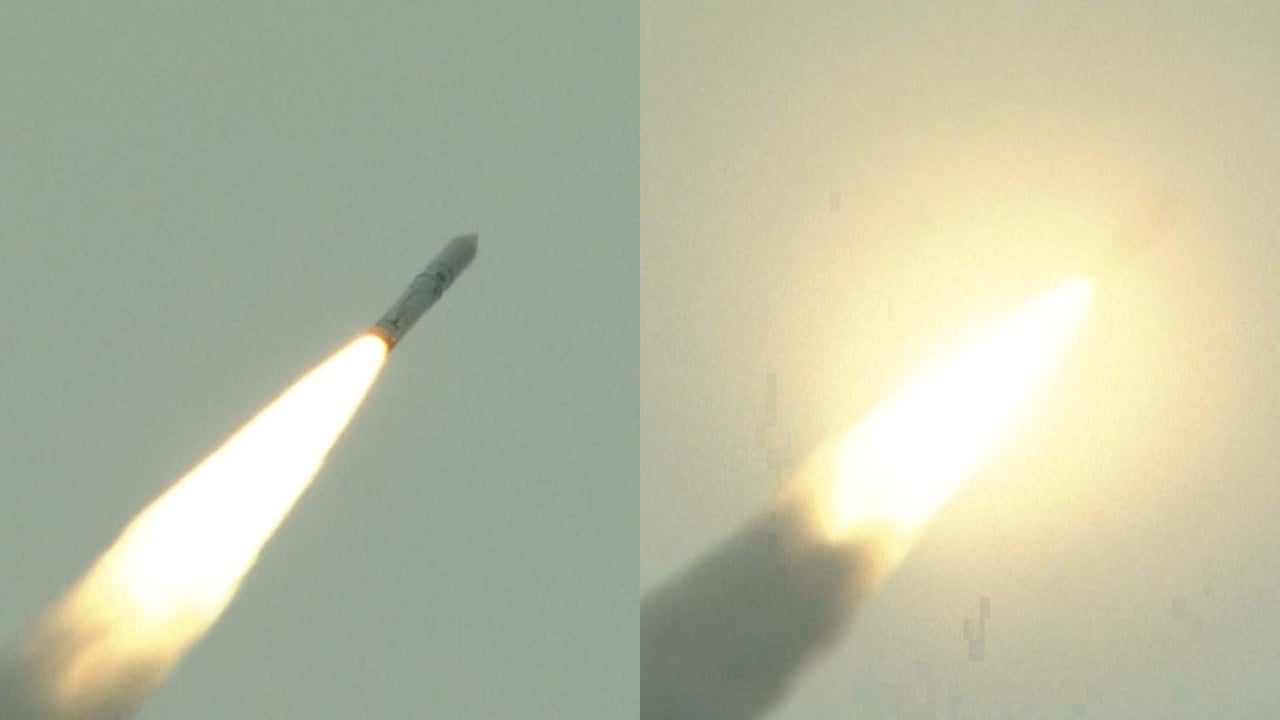Approximately 2 minutes and 27 seconds after liftoff an anomaly occurred on the Zefiro 40 thus ending the Vega C mission.
Data analyses are in progress to determine the reasons of this failure.#VV22— Arianespace (@Arianespace) December 21, 2022
Europe’s access to space in jeopardy after Vega-C rocket failure
- Investigation launched after the latest version of Italy’s Vega-C rocket failed on its second mission
- Launch failure destroys two Earth-imaging satellites and further complicates Europe’s access to space

Flights of the new European Vega-C rocket have been suspended pending an investigation into a launch failure, French firm Arianespace said, leaving Europe with few avenues into space.
Just minutes after the Vega-C rocket lifted off from Europe’s spaceport in Kourou, French Guiana at 10.47pm local time on Tuesday, its trajectory deviated from its programmed route and communications were lost, Arianespace said.
The order to destroy the launcher, which was carrying two satellites built by Airbus, was then given by French space agency CNES.
“The launcher fell down” into international waters in the Atlantic Ocean, Arianespace’s chief technical officer Pierre-Yves Tissier told a press conference.
If successful, it would have been the first commercial launch – and second overall – for the Vega-C since its inaugural flight on July 13.
The rocket was launched over the Atlantic Ocean and had shot past 100km (62 miles) altitude and was more than 900km north of Kourou when the problem occurred.
Tissier said the “failure seems limited to Zephiro 40”, the second stage of the launcher built for the Vega-C by Italian aerospace company Avio.
Avio CEO Giulio Ranzo said the company took full responsibility for the failure.
The flight data was recovered and will now be analysed as part of an inquiry that will be co-led by the European Space Agency and Arianespace.
The independent commission aims to determine “the cause of the failure and to propose robust and long-lasting corrective actions to guarantee a safe and reliable return to flight of Vega-C,” Arianespace chief executive Stephane Israel told the press conference.
The suspension leaves Europe with few options after numerous delays to the next-generation Ariane 6 rocket and cancelled Russian cooperation over the Ukraine war.
Just two launchers remain of the previous-generation Ariane 5, with the only other option being Vega-C’s predecessor Vega.

Otherwise, Europe has no way to launch satellites into orbit or heavy payloads into space until Ariane 6’s long-delayed inaugural flight planned for late 2023 – or when Vega-C flights resume.
Israel said that “neither Ariane 5 or Ariane 6 are impacted by the failure that occurred”.
The failure marks the latest setback for the European Space Agency (ESA), which is aiming to make Europe more competitive in the rapidly expanding satellite market.
Elon Musk, the CEO of US rival rocketmaker SpaceX, tweeted that he was “sorry to hear” of the failure.
“It is a sobering reminder of the difficulty of orbital space flight,” he added.
The Vega-6 rocket had been trying to bring into orbit two Earth observation satellites built by European aerospace giant Airbus.
They were planned to join the Pleiades Neo constellation, which is capable of capturing very high-resolution images of any point on the globe several times a day.
The failure is a blow for Airbus, which developed the programme, whose services are sold to both companies and the military.
Satellites that bring in commercial revenue are usually insured. An industry insider said that the lost Pleiades Neo 5 and 6 satellites were covered for €220 million (US$233 million), potentially allowing Airbus to build them again.
Airbus declined to comment.
Tuesday’s launch was originally scheduled for November 24.
However it was postponed due to a faulty piece of equipment linked to the payload fairing, a type of nose cone, Arianespace’s CEO Israel said, though the problem was not connected to Tuesday’s failure.
Tuesday marked the third failure out of the last nine launches of Vega or Vega-C.
It is also a blow to Avio, which has been involved in three of those failed launches. Avio’s share price plunged more than 9.5 per cent on Wednesday.
As well as the Ariane 6 delays, Europe’s space sector has been further weakened in the aftermath of Russia’s invasion of Ukraine.
Moscow pulled its Soyuz rocket launchers and technical personnel from Kourou earlier this year in response to EU sanctions over the Ukraine invasion.
In the absence of an alternative, ESA has been forced to turn to SpaceX to launch two scientific missions.
